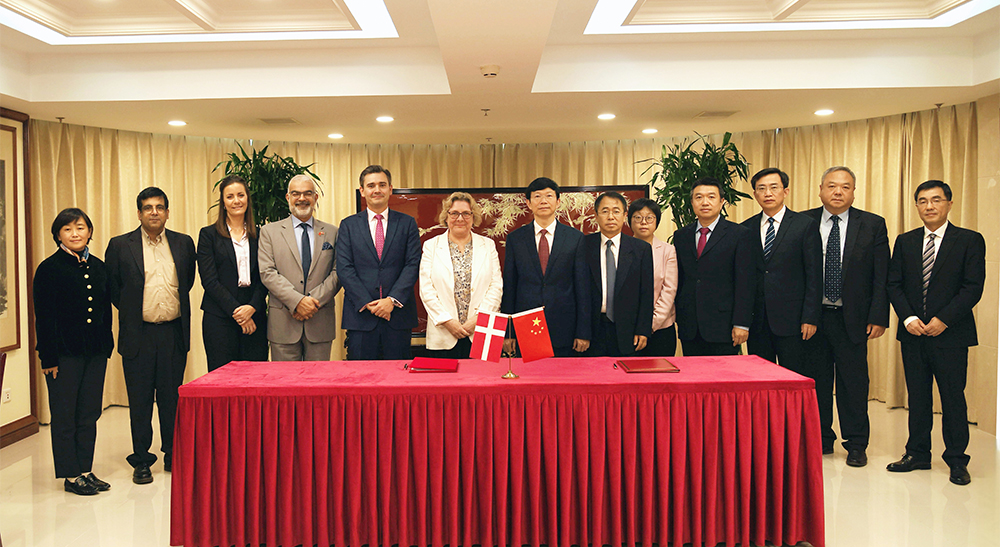母亲孕前体重指数对成年儿子生殖健康的影响!
时间:2024-06-16 16:01:40 热度:37.1℃ 作者:网络
STUDY QUESTION
研究问题
Is maternal pre-pregnancy BMI associated with semen quality, testes volume, and reproductive hormone levels in sons?
母亲孕前体重指数(BMI)与儿子的精液质量、睾丸体积和生殖激素水平有关吗?
SUMMARY ANSWER
结论总结
Maternal pre-pregnancy BMI was associated with an altered reproductive hormone profile in young adult sons, characterized by higher levels of oestradiol, LH, and free androgen index (FAI) and lower levels of sex hormone-binding globulin (SHBG) in sons born of mothers with pre-pregnancy overweight and obesity.
母亲孕前BMI与年轻成年儿子的生殖激素谱改变有关,其特征为孕前超重或肥胖的母亲所生儿子的雌二醇、黄体生成素和游离雄激素指数(FAI)水平较高,而性激素结合球蛋白(SHBG)水平较低。
WHAT IS KNOWN ALREADY
现状
Evidence suggests that maternal pre-pregnancy BMI may influence reproductive health later in life. Only one pilot study has investigated the association between maternal pre-pregnancy BMI and reproductive health outcomes in sons, suggesting that a high BMI was associated with impaired reproductive function in the adult sons.
有证据表明,母亲孕前BMI可能会影响以后的生殖健康。但仅有一个探索性研究调查了母亲孕前BMI与儿子生殖健康之间的关系,结果表明高BMI与成年儿子的生殖功能受损有关。
STUDY DESIGN, SIZE, DURATION
研究设计、规模、持续时间
A population-based follow-up study of 1058 young men from the Fetal Programming of Semen Quality (FEPOS) cohort nested within the Danish National Birth Cohort (DNBC), 1998–2019, was carried out.
对1998—2019年丹麦国家出生队列(DNBC)中胎儿精液质量规划(FEPOS)队列的1058名年轻男性进行了基于人群的随访研究。
PARTICIPANTS/MATERIALS, SETTING, METHODS
参与者/材料、场景、方法
In total, 1058 adult sons (median age 19 years, 2 months), born 1998–2000 by mothers included in the DNBC, participated in FEPOS. At a clinical examination, they provided a semen and blood sample, measured their testes volume, and had height and weight measured. Maternal pre-pregnancy BMI was obtained by self-report in early pregnancy. Semen characteristics, testes volume, and reproductive hormone levels were analysed according to maternal pre-pregnancy BMI categories and as restricted cubic splines using negative binomial and ordinary least square regression models. Mediation analyses examined potential mediation by the sons’ birthweight, pubertal timing, fat mass, and BMI. Additional analyses investigated the role of paternal BMI in the potential associations between maternal BMI and reproductive health outcomes.
共有1058名1998—2000年出生队列中的成年男孩(中位年龄19岁2个月)参加了FEPOS。在临床检查中,他们提供了精液和血液样本,并测量了他们的睾丸体积、身高和体重。母亲孕前BMI在妊娠早期通过自我报告获得。根据母亲孕前BMI分类,采用负二项回归模型和普通最小二乘法回归模型建立限制性立方样条,分析儿子精液特征、睾丸体积和生殖激素水平。中介分析考察了儿子出生体重、青春期发育时间、脂肪量和BMI在其中的潜在作用。其他还分析了父亲BMI在母亲BMI和生殖健康结果之间的潜在关联作用。
MAIN RESULTS AND THE ROLE OF CHANCE
主要结果和偶然性的作用
We found no consistent associations between maternal pre-pregnancy BMI and semen characteristics or testes volume. Sons of mothers with higher pre-pregnancy BMI had higher oestradiol and lower SHBG levels, both in a dose-dependent manner. Sons of mothers with pre-pregnancy obesity (≥30 kg/m2) had higher LH levels and a higher FAI than sons born by mothers with normal pre-pregnancy BMI (18.5–24.9 kg/m2). The mediation analyses suggested that the effect of maternal pre-pregnancy BMI on higher levels of oestrogen, LH, and FAI was partly mediated by the sons’ birthweight, in addition to adult fat mass and BMI measured at the clinical examination, whereas most of the effect on lower levels of SHBG was primarily mediated by the sons’ own fat mass and BMI. Paternal BMI was not a strong confounder of the associations in this study.
我们发现母亲孕前BMI与精液特征或睾丸体积之间没有一定的关联性。怀孕前BMI较高的母亲所生儿子的雌二醇水平较高,SHBG水平较低,两者均呈剂量依赖性。孕前肥胖(30 kg/m2)的母亲较孕前BMI正常(18.5-24.9 kg/m2)的母亲所生儿子的LH和FAI水平高。中介分析表明,受母亲孕前BMI影响出现的高雌激素、LH和FAI水平部分由儿子的出生体重决定,除了临床检查时测量的成人脂肪量和BMI,较低SHBG水平主要由儿子自身的脂肪量和BMI决定。在这项研究中,父亲的体重指数并不是一个很强的混杂因素。
LIMITATIONS, REASONS FOR CAUTION
局限性,注意事项
This study was based in a population-based cohort with a low prevalence of overweight and obesity in both mothers and adult sons. Some men (10%) had blood for reproductive hormone assessment drawn in the evening. While several potential confounding factors were accounted for, this study's inherent risk of residual and unmeasured confounding precludes provision of causal estimates. Therefore, caution should be given when interpreting the causal effect of maternal BMI on sons’ reproductive health.
本研究是以人群为基础的队列研究,在母亲和成年儿子中超重和肥胖的患病率均较低。一些男性(10%)在晚上抽血进行生殖激素评估。虽然考虑了几个潜在的混杂因素,但本研究仍存在残留和未测量的混杂因素,这些固有风险无法排除因果关系。因此,在解释母亲BMI对儿子生殖健康的因果关系时应谨慎。
WIDER IMPLICATIONS OF THE FINDINGS
研究结果的更广泛意义
Given the widespread occurrence of overweight and obesity among pregnant women, it is imperative to thoroughly examine the potential consequences for reproductive hormone levels in adult sons. The potential effects of maternal pre-pregnancy obesity on sons’ reproductive hormone profile may potentially be partly avoided by the prevention of overweight and obesity in the sons.
鉴于孕妇普遍存在超重和肥胖问题,有必要深入研究这对成年儿子的生殖激素水平可能造成的潜在影响。通过预防儿子超重和肥胖,可以在一定程度上避免母亲孕前肥胖对儿子生殖激素水平的潜在影响。
参考文献:
Anne Gaml-Sørensen, Anne Hjorth Thomsen, Sandra Søgaard Tøttenborg, Nis Brix, Karin Sørig Hougaard, Gunnar Toft, Siri Eldevik Håberg, Mikko Myrskylä, Jens Peter Bonde, Cecilia Høst Ramlau-Hansen, Maternal pre-pregnancy BMI and reproductive health in adult sons: a study in the Danish National Birth Cohort, Human Reproduction, Volume 39, Issue 1, January 2024, Pages 219–231, https://doi.org/10.1093/humrep/dead230


